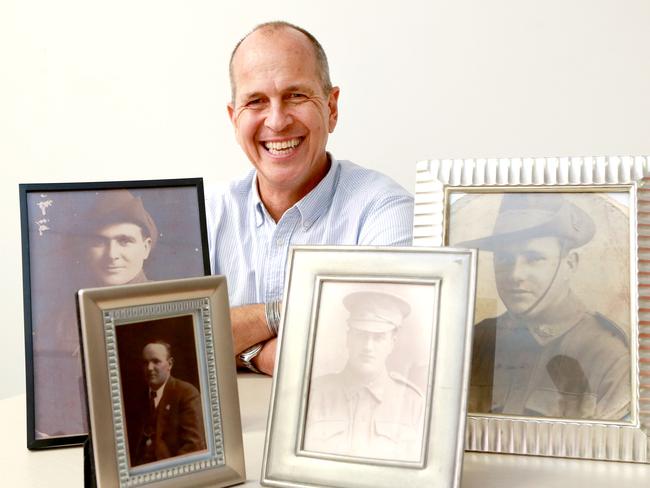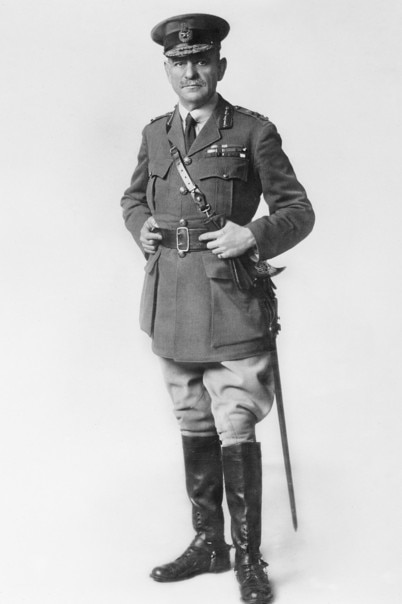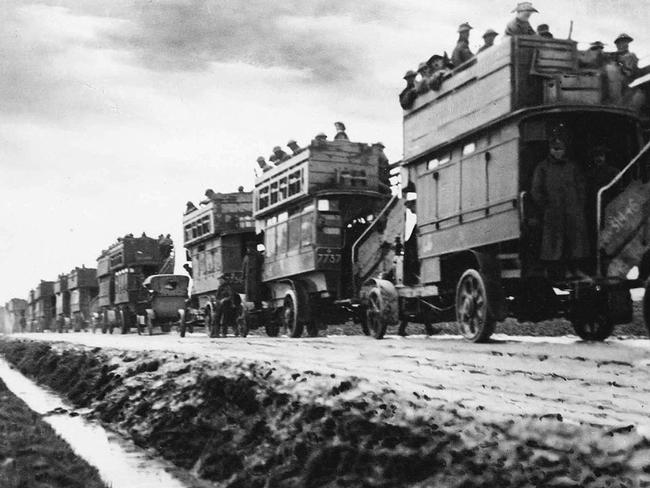Greste doco reveals personal insight into great Australian combat leader, General Monash
WHEN journalist Peter Greste discovered the intimate records of WWI combat leader General Monash, he found many parallels with his own family’s war experience, writes Michael Wray.
CM Insight
Don't miss out on the headlines from CM Insight. Followed categories will be added to My News.
DURING decades travelling to war zones as a foreign correspondent, Queensland journalist Peter Greste chronicled the trials and troubles of people all over the world but rarely had time to turn the lens towards himself.
That all changed on December 29, 2013, when Egyptian interior ministry agents snatched him from a Cairo hotel room, accusing him of aiding the banned Muslim Brotherhood. Locked in Tora Prison with little more than a pad and pen, Greste spent the next 14 months writing in the most personal of formats, largely to an audience of one.
“The act of keeping a diary and the act of writing letters means you are writing from the heart,” he says. “You are writing personal ideas and thoughts and emotions, things you would never expose in any formal way and because it’s never intended to be published or intended for a wider audience you are far more honest than you ever would have been.”
These prison cell compositions created a highly personal record of a globally significant event, so when the National Library asked to have them, he agreed, but only on the condition that they be read after his death or with his express permission.
Greste recently discovered another treasure trove sitting in the depths of the National Library: hundreds of boxes containing the intimate thoughts of General John Monash, who is widely considered to be Australia’s greatest combat general. “This is absolutely colossal,” Greste says as he sees this collection for the first time in one of the opening scenes of his two-part TV documentary General Monash and Me.jk
“When you sit down and handle these things there’s something about the copy, the text, that shows it’s clean, it’s stream of consciousness,” he tells Insight. “There’s no scratching out. It’s beautiful copperplate with very few corrections in there so he hasn’t crafted it, he’s just put his ideas down on a page so you get sense from looking at it and reading it and handling the paper that it is a really frank expression of what he’s going through and you have all these sorts of wonderful moments in there.”

Greste started his project with little substantive knowledge about Monash, who commanded the Australian Corps in the latter stages of World War I and is widely credited with turning the battle in the Allies’ favour through the revolutionary use of combined arms.
Approaching the task as if he were on assignment for the BBC, Reuters or Al Jazeera, his former employers, Greste delved into history not as an end but as a means to explain modern Australia’s relationship with war.
“It was not just to have fusty old historians talking about what Monash did in the past but to make broader connections and to see the parallels and the historical DNA in the way that it shapes the Australian military today,” he says. “Even if we’re not consciously aware of that DNA, Monash’s influence is undeniably still there.”
Peering through the window into Monash’s mind provided the foundation for Greste’s history lesson. “You can see Monash’s insecurity coming through which I found really quite endearing,” he says. “He was desperate for acknowledgment and recognition from people he respected, whether it was other senior officers or royalty; he craved the recognition and writes about it with an innocence that reveals that he did feel insecure about his own reputation.”
Much of Monash’s insecurity stemmed back to his German and Jewish heritage, which made him feel like an outsider in early postcolonial Australia. Those feelings were heightened after war was declared with Germany, a period in which anyone with links to the enemy was viewed suspiciously. Monash spoke German and subscribed to German publications.

And, as Greste also learns, his own family faced these same problems through their German background, clearly apparent through the surname Fankhauser. “The front line drove straight down the middle of Monash as a commander and as a human being as it did my own family,” he says.
He discovers that four of the Fankhauser cousins, his great uncles, served in the war. And through them Greste narrows his focus from the strategic heights of the red-tabbed generals down to the smallest cogs in the Army: the soldiers. “It made it easier to drill down and realise the significance of the war not only at Monash’s level, of commanders and strategy and so on, but to see and think about and understand the impact it had on ordinary soldiers who were fighting and going off to take part in what they thought was going to be a grand adventure,” he says.
Growing up, Greste knew of two of the Fankhauser great uncles, Henry and Ernest, but their stories existed only on the fringes of the regular family folklore. Henry was simply known as “a guy who died in the First World War” while Ern, who was gassed during the battles, came back to Australia physically and mentally shattered. “He never really spoke about the war, nobody really knew how to talk to him about the war, no one knew how to deal with his trauma, he didn’t know how to deal with his trauma so he was kind of marginalised, pushed aside and largely written out of the family,” Greste says.
Researchers looking into Greste’s background discovered the two other great uncles, George and Claude, who also fought in the war. All four men were cousins and they become central points of the narrative, especially as Greste examines Monash’s desire to keep the pressure on the Germans, driving them back to the Hindenburg Line. Greste learns that Monash tells a fellow commander, “casualties no longer matter”.

Mirroring all that Greste knows about war, he finds that making conclusions about Monash is difficult and nuanced. To Greste, Monash seemed too enamoured with soldiering, evident from his pre-war days as a “weekend warrior” in the civil militia. He concludes Monash cared about his men but was not overly sentimental as “he was prepared to throw his men at the guns if he thought it was necessary”.
“We need to see him as a human being – a really complex, interesting human being who struggled with some extraordinary challenges.”
Monash, who fought at Gallipoli on April 25, 1915, was also a pivotal architect of the first Anzac Day commemorations a year later, believing the men who fought and died that day deserved recognition.
Greste believes drawing the links from that time and understanding where we came from is central to appreciating Anzac Day and what it really means today. “I think for me it was really interesting being able to draw those connections, to not just talk about this guy as an historical artefact but as someone who has direct relevance to the present.”
michael.wray@news.com.au
General Monash and Me, ABC, Tue, 8.30pm. Tomorrow in U on Sunday: Love, longing and heartache in my grandmother’s World War II diaries


